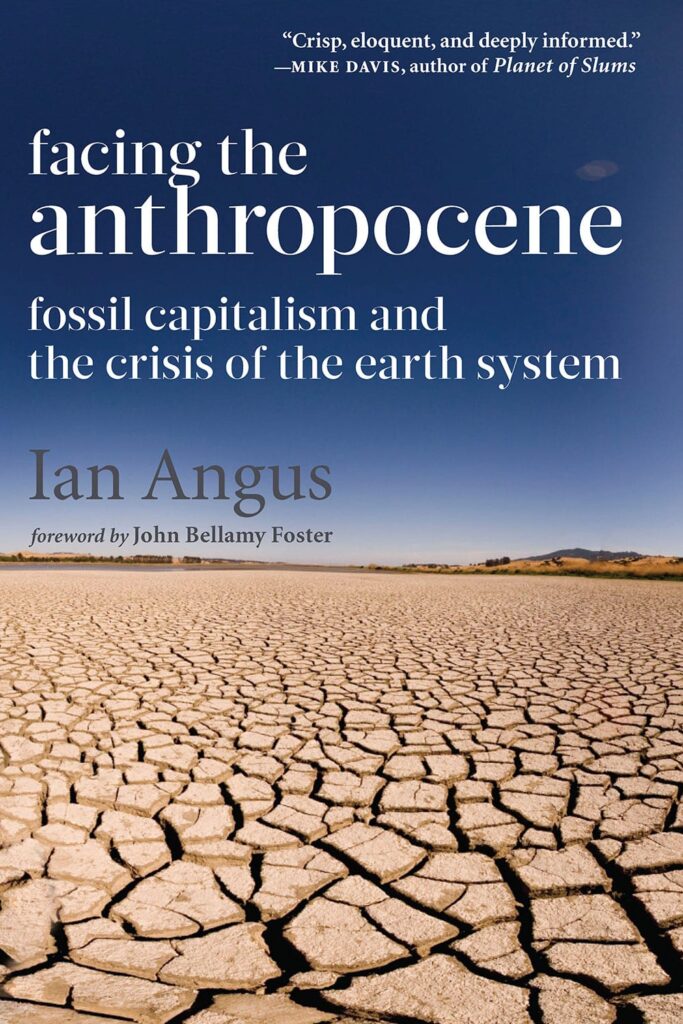Anthropocene Debate: A Conversation with Ian Angus on Climate Change and Geology
The recent rejection by the Sub-commission on Quaternary Stratigraphy to formally recognize the Anthropocene epoch has stirred discussions among environmentalists and scientists. Despite the decision, the term “Anthropocene,” signifying human impact on Earth’s geology and climate, continues to gain traction in various scientific communities. Ian Angus, an advocate for ecosocialism, shares his insights on these developments and their broader implications.
Claudia Antunes: The decision by the geological sub-commission not to recognize the Anthropocene epoch has raised eyebrows. Could this embolden climate change skeptics?
Ian Angus: The decision stems from a conservative streak within the geological community. Historically, many geologists have been resistant to changes that originated outside their field, such as the Anthropocene concept, which was introduced by Earth System scientists. The opposition isn’t just scientific but also tied to social and economic dimensions, notably the backgrounds of many geologists in industries like oil and mining, which are resistant to change.
CA: Could this stance influence political narratives, particularly those downplaying the urgency of climate change?
IA: Climate change deniers might exploit this decision, arguing that even geologists aren’t convinced of the Anthropocene. However, it’s crucial to note that the concept has already been embraced widely in earth sciences, transcending formal endorsements.
CA: There’s debate on when the Anthropocene began. Some suggest its roots trace back to early agriculture. Does this hold weight?
IA: This perspective overlooks the qualitative changes in Earth’s systems that have occurred over the past seventy years. While humans have historically altered environments, the recent shift signifies a fundamental change in Earth’s functioning, unprecedented in the last twelve thousand years.
CA: In Facing the Anthropocene, you discuss carbon’s historical role and its recent shifts due to human actions. Could you elaborate?
IA: Over the past few million years, atmospheric carbon dioxide levels remained within narrow limits, acting as Earth’s thermostat. However, recent decades have seen carbon levels soar, nearly doubling the historical norm, leading to rapid climate shifts unlike any natural process in Earth’s history.
CA: There’s optimism about technological solutions for climate challenges, yet the International Energy Agency remains skeptical about carbon capture. Your thoughts?
IA: The belief in a technological fix is ingrained in capitalist ideology. But even with advanced carbon capture technologies, it would take centuries to significantly impact atmospheric CO2 levels. The current scale of carbon capture is minuscule compared to the problem’s magnitude.
CA: Your book delves into ecosocialism and the concept of metabolic rift. Can you outline its significance in anticapitalist thought?
IA: In the 1960s and ’70s, socialism was seen as a panacea. However, environmental concerns were often sidelined. John Bellamy Foster and Paul Burkett’s works revisited Marx’s writings, highlighting the intrinsic ecological analysis embedded in his work, despite the absence of the term “ecology” during his time.
CA: How did Marx’s ideas evolve in this context?
IA: Marx’s analysis, influenced by scientists like Justus von Liebig, emphasized the universal metabolism of nature. He identified disruptions in natural cycles—such as nutrient depletion in agriculture—as a central environmental issue, coining what is now known as “metabolic rift theory.”
CA: You argue for an “ecological society” rooted in socialism. Why is this critical?
IA: Capitalism prioritizes profit, fostering short-termism and environmental degradation. An ecological society must replace the profit motive with sustainable human development, ensuring long-term ecological balance and equity.
CA: Does this align with the degrowth movement?
IA: While ecosocialism and degrowth originated separately, they converge on the need for systemic change. Planning for degrowth requires dismantling profit-driven incentives and redirecting resources to sustainable, equitable development.
CA: Military spending’s role in economic growth is often overlooked in climate discussions. What are your thoughts?
IA: Military Keynesianism, where economic stability hinges on defense spending, diverts resources from addressing global challenges like inequality and environmental restoration. Redirecting these funds could significantly contribute to global sustainability efforts.
CA: Your book addresses the impact of current food production systems. How does this relate to an ecological society?
IA: Current agricultural practices, like soy cultivation, prioritize profit over sustainability, leading to deforestation and land degradation. An ecological society would prioritize efficient, equitable food systems that align with natural cycles.
Original Story at monthlyreview.org
